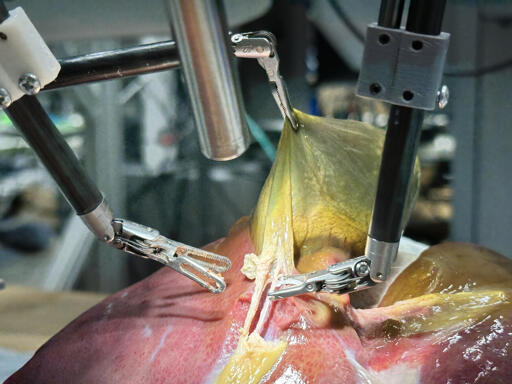A robot trained on videos of surgeries performed a lengthy phase of a gallbladder removal without human help. The robot operated for the first time on a lifelike patient, and during the operation, responded to and learned from voice commands from the team—like a novice surgeon working with a mentor.
The robot performed unflappably across trials and with the expertise of a skilled human surgeon, even during unexpected scenarios typical in real life medical emergencies.



At some point in a not very distant future, you will probably be better off with the robot/AI. As it will have wider knowledge of how to handle fringe cases than a human surgeon.
We are not there yet, but maybe in 10 years or maybe 20?
Or the most common cases can be automated while the more nuanced surgeries will take the actual doctors.
The main issue with any computer is that they can’t adapt to new situations. We can infer and work through new problems. The more variables the more “new” problems. The problem with biology is there isn’t really any hard set rules, there are almost always exceptions. The amount of functional memory and computing power is ridiculous for a computer. Driving works mostly because there are straightforward rules.
I doubt it. It simply would be enough, if the AI could understand and say when it reaches its limits and hand over to a human. But that is even hard for humans as Dunning & Kruger discovered.